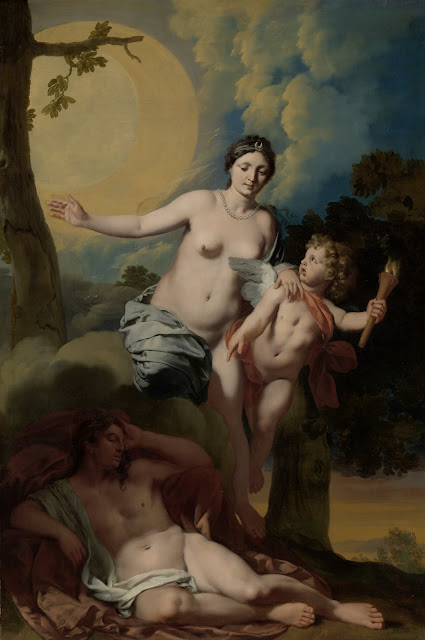 |
| Adriaen van de Venne Four Seasons – Spring (The Meeting) 1625 oil on panel Rijksmuseum, Amsterdam |
 |
| Adriaen van de Venne Four Seasons – Summer (Greeting) 1625 oil on panel Rijksmuseum, Amsterdam |
 |
| Adriaen van de Venne Four Seasons – Autumn (Conversation) 1625 oil on panel Rijksmuseum, Amsterdam |
 |
| Adriaen van de Venne Four Seasons – Winter (Amusement on the Ice) 1625 oil on panel Rijksmuseum, Amsterdam |
Leave the Hand In
Furthermore, Mr. Tuttle used to have to run in the streets.
Now, each time friendship happens, they're fully booked.
Sporting with amaryllis in the shade is all fine and good,
but when your sparring partner gets there first
you wonder if it was all worth it. "Yes, why do it?"
I'm on hold. It will take quite a lot for this music
to grow on me. I meant no harm. I've helped him
from getting stuck before. Dumb thing. All my appetites are friendly.
Children too are free to go and come as they please.
I ask you only to choose between us, then shut down this election.
But don't reveal too much of your hand at any given time.
Then up and pipes the major, leave the hand in,
or change the vows. The bold enduring menace of courtship is upon us
like the plague, and none of us can say what trouble
will be precipitated once it has had it way with us.
Our home is marshland. After dinner was wraparound.
You got a tender little look at it.
Outside, it never did turn golden.
– John Ashbery (2009)
 |
| Johannes Lingelbach Landscape with Riders, Hunters, and Peasants ca. 1650-74 oil on canvas Rijksmuseum, Amsterdam |
 |
| Govert Flinck after Carel Fabritius Hera Hiding during the Battle of the Gods and the Giants ca. 1643 oil on canvas Rijksmuseum, Amsterdam |
 |
| Gérard de Lairesse Selene and Endymion ca. 1680 oil on canvas Rijksmuseum, Amsterdam |
 |
| Jan Brueghel the Elder Latona and the Lycian Peasants ca. 1605 oil on panel Rijksmuseum, Amsterdam |
from Ulanova at Forty-Six at Last Dances Before a Camera Giselle
You have spent your life writing tragedies for a world that does not
believe in tragedy. What is tragedy? Everyone is born somewhere:
into this body, this family, this place. Into the mystery of your own
predilections that change as you become conscious of what governs
choice, but change little. Into, in short, particularity inseparable
from existence. Each particularity, inseparable from its history,
offers and denies. There is a war between each offer you embrace
and what each embrace precludes, what its acceptance denies you.
Most of us blunt and mute this war in order to survive. In tragedy
the war is lived out. The radical given cannot be evaded or erased. No
act of intelligence or prowess or cunning or goodwill can reconcile
the patrimony of the earth.
– Frank Bidart (2007)
 |
| circle of Jan Both Farmyard ca. 1630-70 oil on panel Rijksmuseum, Amsterdam |
 |
| Aelbert Cuyp River Landscape with Riders ca, 1653-57 oil on canvas Rijksmuseum, Amsterdam |
 |
| attributed to Johannes van Wijckersloot Allegory of The Card Game on the Cradle ca. 1643-83 oil on canvas Rijksmuseum, Amsterdam |
 |
| Adriaen van de Velde Portrait of a Couple with Two Children and Nursemaid 1667 oil on canvas Rijksmuseum, Amsterdam |
 |
| Adam Pijnacker Shepherdess with Animals in a Mountain Landscape ca. 1649-73 oil on canvas Rijksmuseum, Amsterdam |
 |
| Rembrandt Landscape with a Stone Bridge 1638 oil on panel Rijksmuseum, Amsterdam |
Draft of a Landscape
Circular graves, below. In
four-beat time the year's pace on
the steep steps around them.
Lavas, basalts, glowing
stone from the world's heart.
Wellspring tuff
where light grew for us, before
our breath.
Oilgreen, soaked with sea spray the
impassable hour. Toward
the centre, grey,
a stone saddle, and on it,
dented and charred,
the animal forehead with
its radiant blaze.
– Paul Celan (1959), translated by Michael Hamburger (1971)
Poems from the archives of Poetry (Chicago)